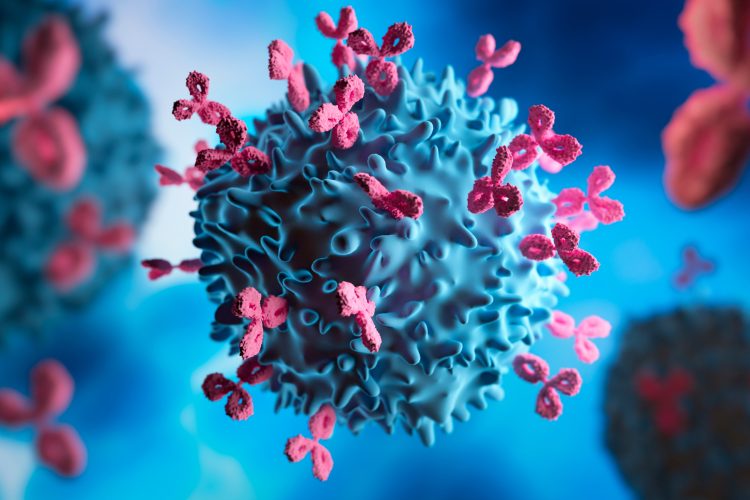Leveraging agonist antibodies to address immunological diseases
Posted: 7 November 2024 | Dr Judy Chou (AltruBio Inc) | No comments yet
Therapeutic antibodies play a key role in addressing unmet medical needs. Here, Dr Judy Chou, CEO, President and Board Member of AltruBio, Inc, explains how agonist antibodies show potential as a novel therapeutic approach in immunological diseases, helping to mediate interactions between circulating immune cells and influencing the intensity and duration of inflammatory responses.


Introduction
Therapeutic antibodies have proven to be indispensable medicines for addressing the most debilitating diseases. These specialised proteins exhibit a remarkable ability to recognise and bind with high specificity to antigens. Their unique affinity and selectivity make them invaluable for scientists striving to unravel the complexities of biology and disease at a molecular level, paving the way for innovative therapeutic strategies and medical advancements.
Agonist antibodies of immune checkpoint regulators
These represent a groundbreaking class of immunotherapeutic agents that mimic the natural function of endogenous ligands by binding to specific cell-surface receptors. In the context of immune responses, these antibodies can activate signalling pathways that regulate crucial processes like cellular exhaustion, apoptosis, etc, to complete the lifecycle of immune cells. By engaging their target receptors, agonist antibodies can amplify the downregulation of immune responses or temper the activation and expansion of over-activated T cells. This targeted enhancement not only boosts the body’s natural mechanisms but also holds promise for developing novel treatments in immunology, where modulating immune responses can lead to more effective and durable therapeutic outcomes.
Multivalent agonist antibodies of immune checkpoint regulators can be designed to engage multiple receptors simultaneously, amplifying signalling pathways essential for immune-cell inactivation and effector functions. These antibodies are engineered to bind to specific cell-surface receptors in a multivalent manner, effectively cross-linking and clustering receptor complexes upon binding. By doing so, multivalent agonist antibodies can trigger robust cellular responses, such as cytotoxic activity, down-regulation of immune-cell proliferation and/or reduction of cytokine production. This approach augments the strength of achieving immune homeostasis.
Agonist antibodies in immunological diseases
Agonist antibodies targeting immune checkpoint pathways are increasingly recognised and investigated for their potential in immunological diseases. While immune checkpoint blockade with antagonistic antibodies (eg, anti-PD-1, anti-CTLA-4) has been more extensively studied and clinically established, agonist antibodies have emerged as a promising complementary approach to immune checkpoint regulators, enhancing the downregulation of T-cell proliferation, cytokine production and effector function, and thereby promoting the balance of immunological response. This differs from immune checkpoint blockade, which aims to relieve inhibitory signals that suppress T-cell activity.
Often immunological diseases involve deficiencies or dysregulation of immune function. In these conditions, the goal of therapy is typically to suppress or mitigate immune activity. Agonist antibodies offer an opportunity to selectively suppress immune cells, effectively downregulating an immune response. Yet the challenge remains in carefully balancing immune inactivation without impairing immune activities to defend against pathogens and/or cancer cells.
Agonist antibodies targeting PSGL-1
P-selectin glycoprotein ligand-1 (PSGL-1) has recently been recognised as a new immune checkpoint regulator and is quickly emerging as a promising therapeutic target in both oncological and immunological diseases.1 Since the discovery of PSGL-1, it has demonstrated to be a crucial glycoprotein expressed on the surface of leukocytes – particularly neutrophils, monocytes and lymphocytes – that plays a pivotal role in mediating interactions between circulating immune cells and endothelial cells lining blood vessels during inflammation and other immune responses.2 The hypothesis is that PSGL-1 achieves this by binding to selectins, facilitating the rolling of leukocytes along the endothelium – a critical step in the recruitment of immune cells to sites of tissue injury or infection. However, beyond its potential adhesive function, PSGL-1 is also involved in signal transduction processes that regulate leukocyte activation, especially T cells, thereby influencing the intensity and duration of inflammatory responses. Understanding the intricate role of PSGL-1 in immune-cell recruitment and activation is essential for developing targeted therapies aimed at modulating immune responses in various inflammatory and autoimmune disorders.
Agonist antibodies targeting immune checkpoint pathways like PSGL-1 represent a novel approach in immunotherapy for immunological diseases, leveraging the protein’s pivotal role in immune cell recruitment and activation. By mimicking the natural ligands of PSGL-1, these antibodies can selectively engage PSGL-1 on leukocytes, particularly T cells, neutrophils and monocytes, enhancing the function of immune checkpoint regulation by amplifying local immune responses to downregulate chronically activated T cells.
AltruBio’s ALTB-268 is an example of a tetravalent agonist antibody targeting PSGL-1. Its unique mechanism of action augments the natural regulation of T-cell homeostasis that preferentially down-regulates chronically activated T cells without affecting resting or early activated T cells. Because pathogenic T cells underlying inflammatory conditions are usually in a late-stage, chronically activated state, eliminating this population of cells can potentially result in controlling autoimmune and/or inflammation associated with T cells, such as psoriasis, psoriatic arthritis, ulcerative colitis, acute GvHD and type 1 diabetes. Agonist antibodies against PSGL-1, like ALTB-268, hold significant potential in treating inflammatory diseases, where modulating immune cells in a chronically activated stage can mitigate tissue damage, restoring natural immune system balance and potentially improving therapeutic outcomes.
Conclusion
The landscape of treatments for immunological diseases is vast, consisting of biologics, JAK inhibitors, S1P receptor modulators, anti-inflammatory agents and immunosuppressants.3,4 Many of these agents work to combat disease by systemically dampening the immune system, which often leads to unwanted side effects or, in some cases, fails to be effective altogether. Yet, there is a promising future for agonist antibodies of immune checkpoint regulators as researchers continue to unveil their intricate mechanisms of action, offering novel avenues for advancing precision medicine in immunology and inflammatory disorders.
References
1 Tinoco R, Otero DC, Takahashi AA, Bradley LM. (2017). PSGL-1: a new player in the immune checkpoint landscape. Trends in immunology, 38(5), 323-335.
2 Carlow DA, Gossens K, Naus S, et al. (2009). PSGL‐1 function in immunity and steady state homeostasis. Immunological reviews, 230(1), 75-96.
3 Aslam N, Lo SW, Sikafi R, et al. A review of the therapeutic management of ulcerative colitis. Therap Adv Gastroenterol. 2022 Nov 29; 15:17562848221138160.
4 McInnes IB, Gravallese EM. Immune-mediated inflammatory disease therapeutics: past, present and future. Nat Rev Immunol 21, 680–686 (2021).
About the author
Judy Chou, PhD, President and Chief Executive Officer, AltruBio


Before Bayer, Judy held the role of Vice President of Pharmaceutical Operations at Pfizer, Inc./Medivation where she led the development and manufacturing organisations for both biologics and small molecule products. She was also Vice President of R&D and Manufacturing at Tanvex Biopharma and has enabled the success of the company’s IPO. Throughout her career, Judy has achieved significant milestones in biologics development and multiple filings of BLAs, NDAs and INDs of novel products and is broadly recognised for her work at Genentech, Pfizer (Wyeth) and Abbvie (Abbott) – especially in the development of breakthrough technologies and accelerated product development.
Currently, Dr Chou also serves on the Board of Directors of Akero Therapeutics, Inc. and California Institute of Regenerative Medicines (CIRM), and is an advisory board member of UC Berkeley Engineering School and Silicon Valley Women in Engineering. Dr Chou obtained her PhD from Yale University and completed her post-doctoral training at Max-Planck Institute in Germany.
Related topics
Antibodies, Immunology, Therapeutics
Related conditions
immunological disorders
Related organisations
AltruBio Inc
Related people
Dr Judy Chou (AltruBio Inc)








